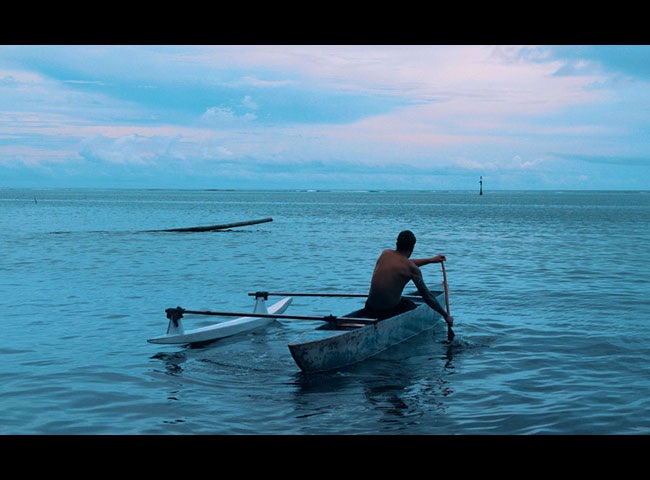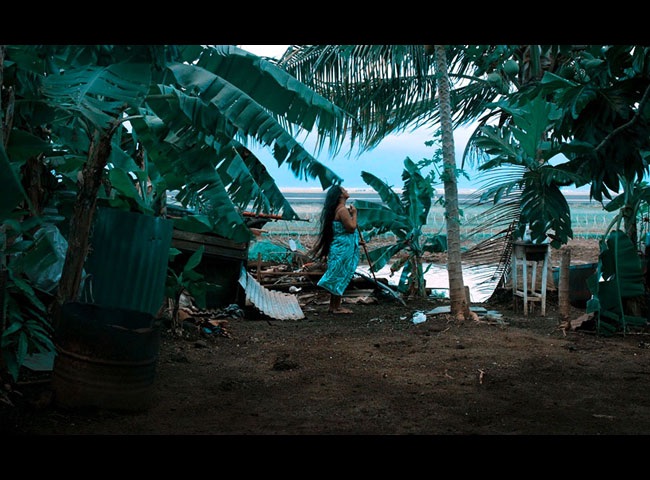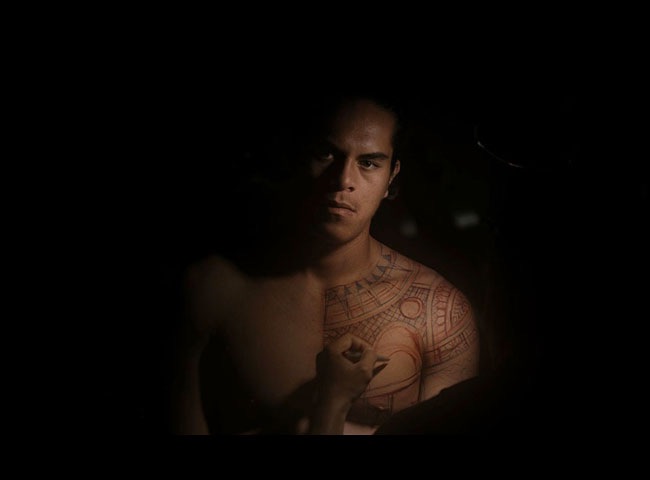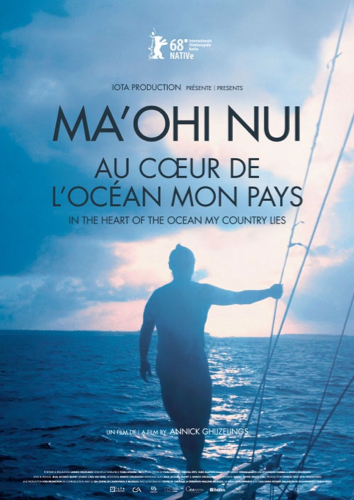Ma'ohi nui, au cœur de l'océan mon pays
-
Réalisé par Annick Ghijzelings • Écrit par Annick Ghijzelings
-
2017 • 113 minutes • HD • Couleur
- Réalisation :
Annick Ghijzelings - Écriture :
Annick Ghijzelings - Image :
Caroline Guimbal, Annick Ghijzelings - Son :
Jean-Jacques Quinet - Montage :
Annick Ghijzelings - Voix off :
Flora Devatine - Musique originale :
Herman Martin
- Production (structure) :
Iota Production - Participation :
CBA - Centre de l'Audiovisuel à Bruxelles, Centre du Cinéma et de l'Audiovisuel de la Fédération Wallonie-Bruxelles, Casa Kafka Pictures - Ayant droit :
Iota Production
- N° ISAN :
non renseigné
Résumé
Tahiti, Polynésie française. Entre la piste de l’aéroport international et une petite colline de terre s’étend le quartier du Flamboyant. Là, on dit "quartier" pour ne pas dire "bidonville". Ces quartiers sont les lieux que l’histoire coloniale française et les trente années d’essais nucléaires ont rempli d’un peuple aliéné, fatigué. À l’image de la radioactivité qu’on ne peut ni sentir, ni voir, mais qui persiste pour des centaines de milliers d’années, la contamination des esprits s’est lentement et durablement installée. Aujourd’hui le peuple Ma’ohi est un peuple dominé qui a oublié sa langue, qui ignore son histoire et qui a perdu le lien à sa terre et son rapport au monde.
Pourtant là, dans ce quartier de baraques colorées, quelque chose survit, quelque chose de ténu, d’enfui, de presque invisible, et qui résiste à la disparition.
En confrontant l’esprit Ma’ohi à son histoire nucléaire et à son présent fracturé, le film montre le visage d’une colonisation contemporaine et l’élan vital d’un peuple qui tente de ne pas s’oublier et qui, silencieusement, cherche le chemin de l’indépendance.
Tahiti, French Polynesia. Between the runway of the International airport and a small mound of earth lies a district called the Flamboyant. Over there, one says "district" as not to say "shantytown". French colonial history and thirty years of nuclear tests have filled these districts with an alienated and tired people. Like the radioactivity that one cannot feel or see, but that persists for hundreds of thousands of years, the contamination of minds has slowly and permanently installed itself. Today the Ma'ohi people are a subordinate people who have forgotten their language, ignored their history and have lost their connection to their land and their relationship to the world. Yet within this neighbourhood of coloured sheds, something survives, something tenuous, hidden, almost invisible, which resists erasure. By confronting the Ma'ohi spirit with its history of nuclear tests and its fractured existence, the film shows the face of contemporary colonisation and the vital impetus of a people trying not to forget themselves and who, silently, are seeking the path of independence.
Mot(s)-clé(s) thématique(s)
Sélections et distinctions
- 2018 • Festival international du cinéma des peuples Ânûû-rû Âboro • Poindimié (Nouvelle-Calédonie) • Sélection Pacifique Hors compétition
- 2018 • FIFIG - Festival International du Film Insulaire de Groix • Île de Groix (France) • Compétition officielle
- 2018 • Festival de Cinéma de Douarnenez - Gouel Ar Filmou • Douarnenez (France) • Sélection Grande tribu
- 2018 • Rencontres Gindou Cinéma • Gindou (France) • Sélection longs métrages
- 2018 • Festival international du film de Berlin - Berlinale • Berlin (Allemagne) • Sélection
Comment avoir accès au film ?
- Sortie en salle
-
Édition DVD
- Il n'existe pas d'édition DVD à notre connaissance
-
Accès VOD
- Il n'existe pas d'accès en VOD à notre connaissance
- Distribution
- Aide sur les moyens d'accéder à un film



